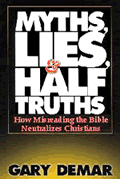Other
Chumley
Articles:
States' Rights Suffer Under Hate Crime Bill
UN Crime Fighting-Treaty Spells Disaster for America
UN Plan For Internet Control Inches Forward
HR-67: APPEASEMENT IN DISGUISE
By
Cheryl Chumley
January 5, 2005
NewsWithViews.com
Don�t be fooled into thinking the newly introduced National Commission on the Modernization of the United Nations Act of 2005 is really aimed at returning this country to some semblance of the sovereign power it once was.
It�s not. Rep. Ander Crenshaw�s (R-Fla.) Jan. 4 measure is instead, unwittingly or not, a watery provision that dodges real solution even while it plays the most popular of political games, Let�s Do a Study.
What H.R. 67 seeks is this: to establish a nine-member commission to study reforms within the United Nations and its Charter; to research actions to take against member nations that don�t comply with U.N. principles; to decide whether each U.N. state should receive one General Assembly vote; to debate the merits of a standing separate U.N. peacekeeping force; and to analyze whether member dues should fund U.N. commissions.
This commission, comprised of appointees by the president, House and Senate leaders and the Secretary of State, would hold authority to demand staff and information from any government agency it deems necessary to fulfill its mandate - the issuance of a final report to Congrress on its findings no later than 12 months after the act is enacted.
The good part is this - the �commissionn shall terminate 15 days after submission of its final report.�
The bad part, however, is that no such commission has need to exist in the first place. If Congress really wanted to reform America�s relationship with the United Nations, its members already possess the power and authority to do so, even without this commission.
It�s called the oath of office, and surely the words contained within are all that�s needed to enact the types of change sought with this bill.
�I do solemnly swear (or affirm) that I will support and defend the Constitution of the United States against all enemies, foreign and domestic; that I will bear true faith and allegiance to the same; that I take this obligation freely, without any mental reservation or purpose of evasion; and that I will well and faithfully discharge the duties of the office on which I am about to enter: So help me God.�
Why form a commission to state what can only be the obvious -- that the United Nations is scandal-ridden and corrupt, by and large antithetical to the interests of America?
Really, Congress can�t be blind to the historical contempt of this global body towards the United States, as evidenced most recently via the ongoing Oil-for-Food debacle and the lackadaisical attitude of its key suspect to provide information that could actually assist the investigation. That the United States does not press U.N. Secretary-General Kofi Annan for answers is atrocious enough.
But that our investigative approach would turn to the bureaucratic creation of a commission to tell what is already known shows the true colors of this bill: It�s a diplomatic means of acknowledging a problem to the American public without alienating the international community.
Such action is doomed to backfire, if history can be considered a guide, because it�s based on logic that supposes rights don�t exist unless they are actually named. In this case, the bill is trying to suggest that Congress does not have knowledge or authority to reform the United Nations and America�s participation in the global body without first creating and deferring to a commission. In another case, decades ago, debates centered on whether listing certain rights in our nation�s Constitution would impede or enhance the ability of a nation�s people to control their government.
Before the Bill of Rights were two lines of thought. One held that a line-by-line emphasis of the rights that were guaranteed to each individual was necessary as an added protection against government usurpation. Another held that to list such would only open the door to government abuse, as clever interpreters would slowly erode the meaning of God-given and replace it with a system of government grants and a people without power.
What can be given can also be taken away, nay-sayers to inclusion of the Bill of Rights warned ? and rightly so, given the status of amendments like the second, gun ownership, or the fifth, private property protections.
If that supposition still holds true, then America faces a risky future with this bill and its inherent claim that Congress cannot by itself take action to reform the United Nations.
� 2005 Cheryl Chumley - All Rights Reserved
Sign Up For Free E-Mail Alerts
E-Mails are used strictly for NWV alerts, not for sale
Cheryl K. Chumley is a former award-winning reporter and columnist. Her coverage has ranged from the 2000 presidential election, on scene for the Democrat National Convention in L.A. and for election night in Nashville, Tenn., to small town courts and police.
Cheryl K. Chumley is a columnist who writes for
www.abetterearth.org, as well
as contributes to www.federalobserver.com,
www.pipelinenews.org, www.newswithviews.com
and www.thedailycannon.com.
She may be reached at ckchumley@aol.com.
If Congress really wanted to reform America�s relationship with the United Nations, its members already possess the power and authority to do so, even without this commission.










